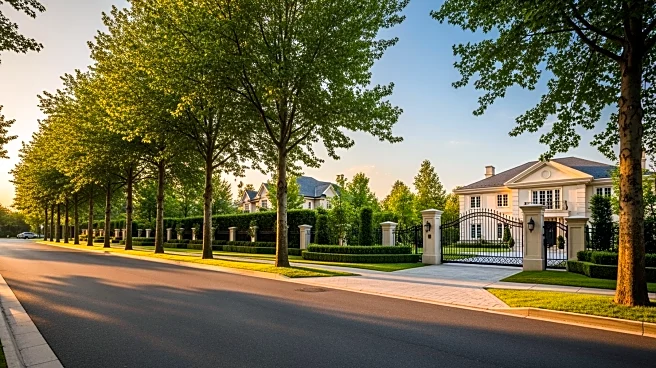What's Happening?
A recent study by GOBankingRates has identified Muttontown, a small town in Long Island, as the wealthiest small town in New York. The study analyzed property prices and median incomes, focusing on towns
with 500 to 1,500 households. Muttontown boasts a median household income of $247,589 and an average home value of $2.21 million. The town is home to notable residents such as Grammy winner Alicia Keys and former Jets quarterback Chad Pennington. This revelation comes after a previous study by the same company named Scarsdale in Westchester County as the wealthiest suburb in America, although it was excluded from the small town study due to its larger size.
Why It's Important?
The designation of Muttontown as the wealthiest small town in New York highlights the economic disparities within the state and the concentration of wealth in certain areas. This could influence real estate trends, as affluent individuals may seek to invest in properties within such high-value areas. Additionally, the presence of high-profile residents can attract further interest and investment, potentially driving up property values even more. The study also sheds light on the economic landscape of small towns across the U.S., providing insights into where wealth is concentrated and how it impacts local economies.
What's Next?
The recognition of Muttontown as the wealthiest small town may lead to increased interest from potential homebuyers and investors, potentially driving up property prices further. Local businesses and services may also see a boost as the town's affluent status attracts more visitors and residents. Additionally, other towns may look to Muttontown as a model for economic development, seeking to replicate its success in attracting wealth and high-profile residents.
Beyond the Headlines
The study's findings could have broader implications for urban planning and development strategies in small towns. As wealth becomes concentrated in certain areas, issues such as affordable housing and community services may arise, requiring careful management to ensure balanced growth. Furthermore, the cultural and social dynamics of these towns may shift as new residents bring different expectations and lifestyles, potentially impacting local traditions and community cohesion.










